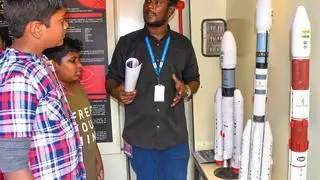A gene remnant that humans inherited from Neanderthals is not making South Asians more prone to severe form of SARS-CoV-2 as it was suggested by some well-known geneticists in the West, showed a study by Indian researchers published in Scientific Reports on Friday.
In September last year, a geneticist Svante Paabo, at Max Planck Institute for Evolutionary Anthropology at Leipzig in Germany, credited for his pathbreaking work on the Neanderthal genome, and his colleague Hugo Zeberg, in a paper published in Nature said an ancient gene variant from the extinct hominin that some people carry make them prone to serious complications from Covid-19. Their study which included samples from many Bangladeshi-descendants in the UK, found that nearly 30 per cent of South Asians have this variant in their genome as against 8 per cent of Europeans and 4 per cent of Americans.
However, a team of Indian researchers mainly from Banaras Hindu University (BHU) in Varanasi and the Centre for Cellular and Molecular Biology, Hyderabad found that the presence of this gene variant – called Neanderthal core haplotype — does not pose greater risk to Indians or even Bangladeshis unlike their counterparts in Europe.
“They collected data coming from the UK Bangladeshi population and there they showed that the frequency of deaths (in the first wave) was two times more than the native population. Then they assumed that this could be because of this gene variant found in higher frequency in Bangladeshi population,” said Gyaneshwer Chaubey, a professor of genetics at BHU.
“But as we have seen from other international projects, people who are living away from the countries of origin for long have many other factors such as food habits, nutrition level and hygiene that alter their susceptibility to diseases,” Chaubey said.
Genetic factors
He strongly believes that there are some genetic factors that are protecting our people from severity of the infection and that will not be known unless and until genomic wide association (GWA) studies are carried out in India.
Kumarasamy Thangaraj, a CSIR-CCMB scientist and another senior author of the paper, agreed that such largescale GWA studies covering populations from different States are required to understand genetic susceptibility and resistance to the infection. In the current study, the scientists compared the infection and case fatality rates with South Asian genomic data over three different timelines during the pandemic but failed to establish a correlation.
Significantly, in an earlier study, Chaubey together with researchers from multiple institutions across the country chanced upon a gene variant associated with ACE2 receptor, an enzyme that offers a gateway to the SARS-CoV-2 virus into the human system. They showed that this variant has a protective effect on people. Whichever State that had a lower frequency of this gene had suffered maximum during the first wave of the pandemic. While only 30 per cent people had this gene variant in Maharashtra, which suffered the maximum, while it was close to 90 per cent in the north-eastern population, which was among the least affected.
When asked why did India then have a second wave, the BHU professor said it could be attributed to the emergence of more deadly virus variants. “This is precisely the reason we need a dedicated GWA on South Asian Covid-19 patients,” he said.








Comments
Comments have to be in English, and in full sentences. They cannot be abusive or personal. Please abide by our community guidelines for posting your comments.
We have migrated to a new commenting platform. If you are already a registered user of TheHindu Businessline and logged in, you may continue to engage with our articles. If you do not have an account please register and login to post comments. Users can access their older comments by logging into their accounts on Vuukle.